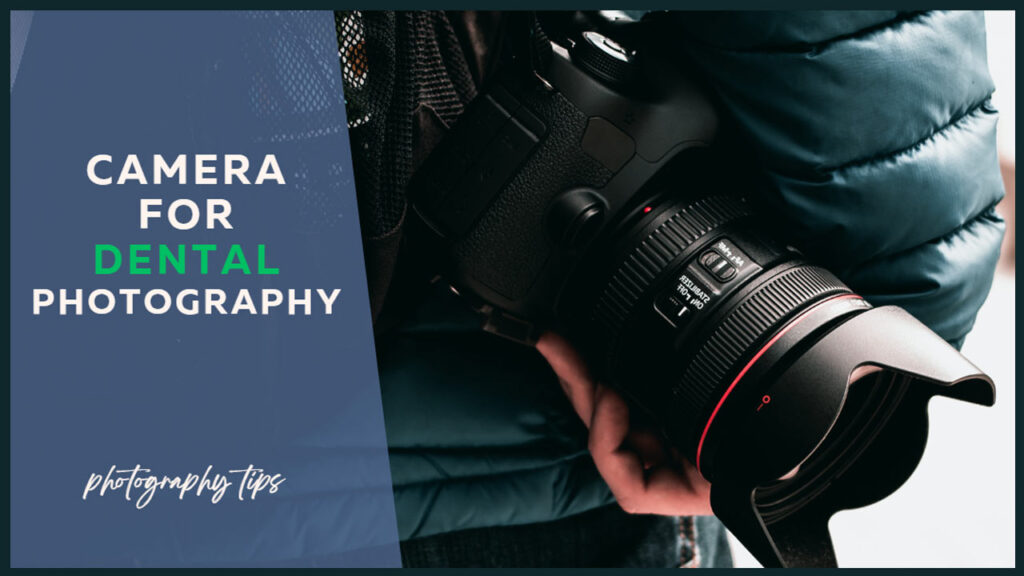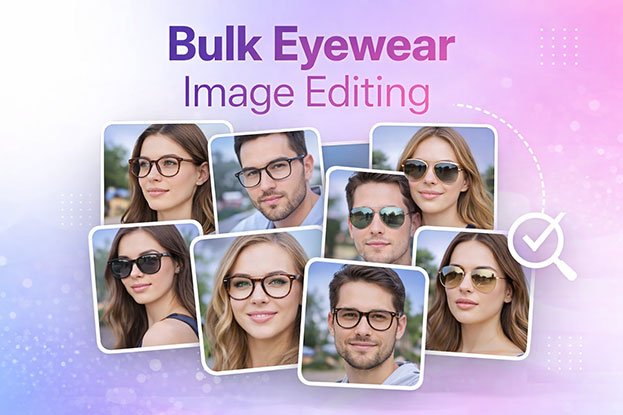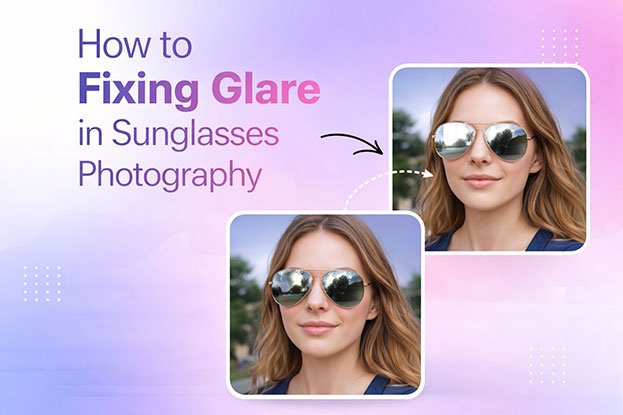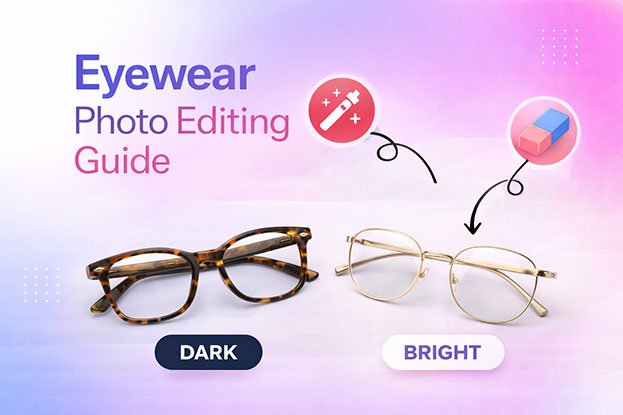In Dental dentistry, the camera for dental photography comes out as a critical instrument, enabling the capture of detailed images within the oral cavity for diagnostic, documentation, and educational aspire.
These specialized cameras, provided with macro lenses, are vital for obtaining close-up views of teeth, gums, and other oral structures with extraordinary clarity.
Such accuracy is key for accurately representing the complex details essential for thorough examination and treatment planning.
also, the right lighting and focus techniques are most important in making sure that these photographs meet the high standards required for a comprehensive patient record.
Dental professionals utilize these images to plan treatments, track changes over time, and build a comprehensive patient history. This highlights the crucial role of dental photography in improving patient care and advancing dental education.
Best Camera for Dental Photography (Top 12 Picks)
1. Nikon D850
The Nikon D850 is a highly regarded full-frame DSLR camera known for its exceptional image quality and versatility. Here are some key features Boasting a 45.7-megapixel sensor, the D850 delivers high-resolution images, making it suitable for detailed dental photography. In addition to photography, the D850 supports high-quality 4K video recording.
2. Canon EOS 5D Mark IV
The Canon EOS 5D Mark IV is a well-regarded full-frame DSLR camera known for its versatility and high-performance capabilities. Here are some key features Equipped with a 30.4-megapixel sensor, the 5D Mark IV delivers detailed and high-resolution images, suitable for various professional applications, including dental photography.
This feature allows for post-capture adjustments to microfocus and bokeh shift, providing additional flexibility in image editing. The 3.2-inch touchscreen allows for easy navigation and quick focus point selection.
The Canon EOS 5D Mark IV is a popular choice among photographers and videographers for its combination of high-resolution imaging, advanced autofocus, and video capabilities. It is often used in various professional settings, including dental photography.
3. Sony Alpha a7R III
The Sony Alpha a7R III is a highly regarded full-frame mirrorless camera known for its impressive resolution and advanced features. Here are some key highlights Featuring a 42.4-megapixel sensor, the a7R III excels in capturing high-resolution images, making it suitable for detailed dental photography.
The camera incorporates a fast and accurate autofocus system with 399 phase-detection points and 425 contrast-detection points, ensuring precise focus. The camera offers a silent shooting mode, beneficial for situations where noise may be a concern. The a7R III’s combination of high resolution, advanced autofocus, and compact mirrorless design makes it a popular choice among professionals and enthusiasts, including those in the field of dental photography.
4. Nikon Z6
The Nikon Z6 is a full-frame mirrorless camera known for its balanced combination of resolution, speed, and video capabilities. Here are some key features The Z6 includes 5-axis in-body image stabilization, helping to reduce the impact of camera shake and enabling sharper images.
The Z6 features a 24.5-megapixel sensor, providing a good balance between resolution and low-light performance. With an ISO range of 100-51,200 the Z6 performs well in various lighting conditions. It supports 4K UHD video recording with full pixel readout, providing high-quality video capabilities.
The Nikon Z6 is a versatile camera suitable for a range of applications, including dental photography, where a combination of resolution, autofocus speed, and video capabilities is essential.
5. Canon EOS R
The Canon EOS R is a full-frame mirrorless camera that combines high-quality imaging with advanced features. Here are some key aspects The camera has an ISO range of 100-40,000 providing flexibility in different lighting conditions.
It supports 4K UHD video recording with Canon Log and 10-bit 4:2:2 output via HDMI, catering to users who need high-quality video capabilities. The 3.2-inch vari-angle touchscreen allows for flexible composition and easy navigation through settings.
6. Sony Alpha a7 III
The Sony Alpha a7 III is a popular full-frame mirrorless camera known for its impressive performance and versatility. Here are some key features Equipped with a 24.2-megapixel sensor, the a7 III strikes a balance between resolution and low-light performance.
The camera features a fast and reliable autofocus system with 693 phase-detection and 425 contrast-detection points, ensuring accurate focus across a variety of shooting scenarios. With 5-axis in-body image stabilization, the a7 III helps minimize the impact of camera shake, especially beneficial for handheld shooting.
7. Nikon D7500
The Nikon D7500 is a mid-range DSLR camera known for its excellent performance and versatility. Here are some key features With a 20.9-megapixel DX-format sensor, the D7500 delivers detailed images, suitable for various photography applications, including dental photography.
The camera features a 51-point autofocus system, providing fast and accurate focus, crucial for capturing detailed shots. The Nikon D7500 is a versatile and capable DSLR that strikes a balance between resolution, speed, and advanced features, making it suitable for various photography needs, including dental photography.
8. Canon EOS 90D
The Canon EOS 90D is an advanced DSLR camera known for its impressive resolution and versatile features. Here are key aspects of the EOS 90D Equipped with a 32.5-megapixel APS-C sensor, the 90D delivers high-resolution images, making it suitable for detailed dental photography.
The camera features Canon’s Dual Pixel CMOS AF technology, providing fast and accurate autofocus, especially useful during live view and video recording. The DIGIC 8 processor contributes to the camera’s fast performance, enabling continuous shooting at up to 10 frames per second.
9. Olympus OM-D E-M1 Mark III
The Olympus OM-D E-M1 Mark III is a mirrorless camera known for its compact design, advanced features, and versatility. Here are some key features The E-M1 Mark III features a 20.4-megapixel Micro Four Thirds sensor, delivering a balance between resolution and portability. The camera boasts a highly effective 5-axis in-body image stabilization system, helping to reduce the impact of camera shake for sharper images.
10. Fujifilm X-T4
The Fujifilm X-T4 is a highly regarded mirrorless camera known for its combination of image quality, advanced features, and versatility. Here are some key highlights The X-T4 features a high-resolution APS-C sensor, providing excellent image quality and detail for dental photography. With 5-axis in-body image stabilization, the X-T4 helps to minimize the impact of camera shake, allowing for sharper images, especially in challenging shooting conditions. It supports high-quality 4K UHD video recording with advanced features, making it a versatile tool for videography as well. Fujifilm is known for its unique film simulation modes, allowing photographers to achieve distinctive looks straight out of the camera.
11. Sony Alpha a6400
The Sony Alpha a6400 is a compact and versatile mirrorless camera known for its impressive autofocus system and video capabilities. Here are some key features The a6400 features a high-resolution APS-C sensor, providing detailed images for various applications, including dental photography.
The camera boasts an advanced autofocus system with 425 phase-detection and 425 contrast-detection points, ensuring quick and precise focus, particularly useful for capturing detailed shots. The 3.0-inch tilting touchscreen allows for flexible composition, including vlogging and self-portraits. Capable of shooting at up to 11 frames per second with continuous autofocus, the a6400 is suitable for capturing fast-paced action.
12. Olympus PEN-F
Olympus PEN-F is a stylish and compact mirrorless camera known for its retro design and advanced features. Here are some key highlights The PEN-F features a Micro Four Thirds sensor, providing a good balance between image quality and portability. With 5-axis in-body image stabilization, the PEN-F helps reduce the impact of camera shake, contributing to sharper images.
The camera features a fast and accurate autofocus system, ensuring quick and precise focus. The PEN-F has a durable metal construction with a classic design, appealing to photographers who appreciate aesthetics.
The Olympus PEN-F is a camera that combines style with performance, making it suitable for photographers who want a compact and feature-rich camera for various creative purposes, including dental photography.
These cameras are known for their high resolution, image quality, and versatility, making them suitable for dental photography. Keep in mind that lens selection is also crucial for achieving optimal results in dental photography.
How to Choose the Right Camera for Dental Photography
Choosing the right camera for dental photography involves considering several key factors. Here’s a guide to help you make an informed decision
1. Look for a camera with sufficient resolution for detailed images. A sensor around 20 megapixels or higher is generally suitable for dental photography.
2. A fast and accurate autofocus system is crucial for capturing detailed shots. Consider cameras with advanced autofocus technologies, such as phase detection or Dual Pixel CMOS AF.
3. In-body image stabilization can be beneficial to reduce the impact of camera shake, especially when shooting handheld close-ups. This feature enhances image sharpness.
4. Consider the sensor size based on your preferences and requirements. Full-frame sensors generally provide better image quality, but smaller sensors like APS-C or Micro Four Thirds can offer a good balance of performance and portability. A camera with good low-light performance and a wide ISO range is advantageous for dental photography where controlled lighting might not always be possible.
Read: Leverage Professional Dental Photo Editing!
Top 8 Dental Photography Camera Kit
A Complete dental photography kit equips professionals with tools for high-quality imaging, diagnosis, documentation, and education.
1. Camera Body: A high-quality DSLR or mirrorless camera that offers a large sensor, excellent low-light performance, and the ability to shoot in RAW format. This make sure detailed images that are crucial for accurate dental examination and treatment planning.
2. Macro Lens: A macro lens is vital for dental photography. It allows for close-up shots with minimal distortion, capturing detailed images of teeth, gums, and other oral structures. A lens with a focal length of 90mm to 105mm is often recommended for its ability to provide sufficient working distance while maintaining sharpness and detail.
3. Ring Flash or Twin Flash: Proper lighting is important in dental photography. A ring flash or twin flash provides smooth, shadow-free lighting, necessary for highlighting the complicated details of the oral cavity. These types of flashes ensure consistent lighting conditions, crucial for accurate color representation and detail.
4. Dental Mirrors: Dental mirrors are used to access and visualize hard to reach areas within the mouth. They should be made of high-quality, reflective material to guarantee clear and accurate images.
5. Contrasters: Contrasters are black backgrounds that are placed behind the teeth to separate them from the surroundings. This amplify the visual contrast, making the images more visible and easier to assess.
6. Cheek Retractors: Cheek retractors are tools used to hold the lips and cheeks away from the teeth, providing unobstructed views of the oral structures. This is important for capturing Detailed images without interference.
7. Tripod or Stabilizing Equipment: To ensure sharp images and remove camera shake, a tripod or other stabilizing equipment may be included in the kit. This is especially useful for long exposure times or when precision is most important.
8. Carrying Case: A long lasting carrying case that can securely hold all the components of the dental photography kit is required for organization and mobility. It protects the equipment from damage and make sure that everything is quickly available when needed.
This Top 8 dental photography camera kit is a important resource for dental professionals, qualify them to capture detailed and accurate images that are necessary for patient care, diagnosis, and education.
FAQs
What Camera Is Best For Dental Work?
For optimal results in dental photography, it is necessary to select suitable equipment.
A DSLR camera, such as the Canon 1200D or Nikon D3300, is highly recommended due to its compatibility with high-quality macro lenses, which are crucial for capturing detailed close-up images of teeth.
It's best to avoid mirrorless or point-and-shoot cameras for dental imaging due to the lack of required detail.
To complement your DSLR, investing in macro lenses with focal lengths of 85mm, 90mm, or 105mm is essential, along with a ring flash to ensure even, shadow-free illumination. This combination will provide the precision and clarity needed for effective dental photography.
What Tools Are Used In Dental Photography?
The equipment of choice for dental photography is typically a high-quality DSLR or a mirrorless camera, both famous for their better imaging capabilities.
Selecting a camera that shows off a large sensor is crucial, as it significantly increases image quality by capturing more detail and offering improved performance in low-light conditions.
Also, the capability to shoot in RAW format is highly important, providing unique flexibility in post-processing.
This feature allows for extensive adjustments without compromising the original image quality, making it an invaluable asset for professionals to achieve the highest level of detail and accuracy in their dental photographs.
What Is The Best Phone Camera For Dental Photography?
When choosing the best phone camera for dental photography, it's required to prioritize features such as image quality, detail capture, color accuracy, and ease of use.
iPhones and Samsung S Series phones are often favored for this purpose due to their advanced camera technologies and user-friendly interfaces. But, it's important for dental professionals to assess specific camera features and test different devices to determine which one best meets their needs for clinical documentation and patient communication.
What Is The Best Mirrorless Camera For Dental Photography?
The Nikon Z7 is a great mirrorless camera with excellent features for general photography, when it comes to dental photography, there are specific requirements that might make other cameras more suitable.
For dental photography, some key features to consider include macro capabilities, accurate color replication, and simplicity of use in hard spaces. One popular choice among dental professionals is the Sony Alpha a7R IV.
What Is Best Dslr Camera For Dental Photography?
The best DSLR camera for dental photography is the Nikon D850.
It's 45.7MP full-frame sensor, the D850 offers exceptional resolution, ideal for capturing greater details in dental images. Its advanced autofocus system ensures exact focusing, important for perfectly capturing complex dental structures.
Also, the D850 boasts excellent dynamic range and color accuracy, allowing for lifelike and accurate representation of tooth shades and subtle details.
What Is The Best Canon Camera For Dental Photography?
The best Canon camera for dental photography is widely consider as the Canon EOS 5D Mark IV.
This camera features a 30.4MP full-frame sensor, which provides excellent detail and clarity in dental images.
Its advanced autofocus system ensures precise focusing, important for capturing complex dental structures accurately. Also, the EOS 5D Mark IV show off excellent color replication, allowing for accurate representation of tooth shades and subtle details.
What Is The Best Camera Setting For Dental Photography?
Main setting for dental photography are ISO 100, exposure time 1/125 or 1/160, WB white balance flash or 5560K, picture style faithful or fine detail for Canon, picture type Standard or Neutral for Nikon, Focus type AFS-S auto focus single, Aperture f9-11 for portraits white background, f16-18 for close-up white backgrounds, f22-29 for intra oral and laboratory, f32-35 for cross-polarization.
What Lens For Dental Photography?
For dental photography, the best lens is a macro lens with a magnification ratio of 1:1. This means that with minimum focusing distance, which is the closest distance from the lens to the object to get a still sharp image, you can capture a real life 1cm object with the same size on your sensor.
How Do You Take Good Dental Pictures?
Position your patient or subject in a manner that optimizes the image while still ensuring the subject is comfortable enough to appear relaxed and natural. To accomplish this, adjust the patient’s pose in a way that requires no angling or turning of the head or neck.
Head turning, which is a common mistake in dental photography, results in tension, stretching and unnatural positioning of the muscles in the neck, face and jaw. This, in turn, leads to photos that not only are less appealing but also show a distorted version of the very facial structures you’re attempting to document.
For close-up shots, remember that the camera should be at a 90-degree angle from the teeth. The lens and the teeth should be perpendicular to one another, whether you’re shooting head-on or from a lateral view.
When asked to perform a specific action with their teeth such as biting down, patients are inclined to overthink the movement and give you an unnatural or exaggerated version. When taking intraoral photographs, this kind of artificial bite will inaccurately represent the condition or position of the dentition.
When it comes to dental case photography, there’s one final factor to consider: the completeness of your photo documentation. No case study is complete without a full set of photos that record the treatment process. This holds true whether the photos are intended for use as marketing tools, educational resources or patient records.
What Are The Three Main Camera Settings Used In Dental Photography?
The 3 main camera settings are the ISO, the shutter speed, and the F-stop number. The ISO determines how sensitive the sensor is to light; the higher the sensitivity, the grainier the resulting image. The shutter speed controls the duration of exposure to light.
What Is Focal Length For Dental Photography?
The focal length determines how close the dentist needs to be to the patient in order to capture the desired photo. The appropriate focal length for dental photography is a range 85–105 mm, depending on the type of camera as well as how much space is present in the dental operatory or studio setting.
What Is Digital Dental Photography?
The process of dental digital photography is a kind of macro-photography and with the advent of digital cameras; photography has become an easy and accessible way of educating and documenting our patients.
Why Is Digital Photography Important In Dentistry?
Dental photography serves as an effective way for documentation, patient communication and education, and treatment planning in modern dental practice. While conventional dental photography captures images in high spatial resolution and in color, it is limited to providing 2D information.















